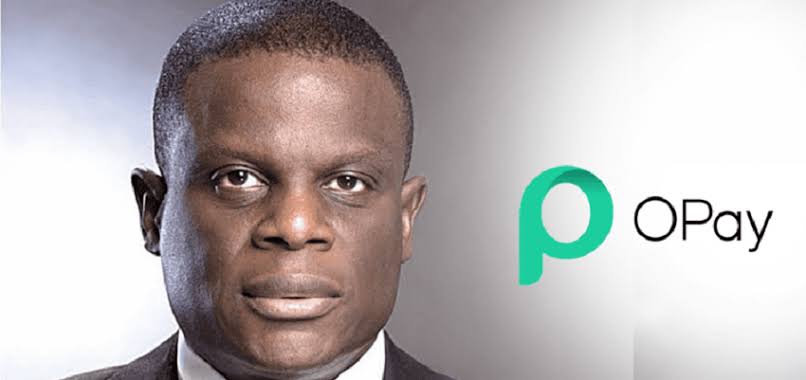The CEO of Opay Nigeria, Olu Akanmu, has said goodbye to his job on a sad day filled with both thought and excitement.
This marked the end of a chapter in which he worked hard to improve financial inclusion in Nigeria.
Akanmu was a leader with a clear vision and a supporter of digital banking systems. He leaves behind a legacy of progress and innovation. In a tweet, he thanked his coworkers, ecosystem partners, and supporters from the bottom of his heart for their work.
“I want to express my gratitude to all of my Opay coworkers for the excellent work we did together to further financial inclusion in Nigeria, ensuring that fewer and fewer of our people are left behind in our group’s efforts to increase access to financial services for millions of Nigerians.”
He acknowledged the significant progress made but stressed that more has to be done to ensure that no one is left behind in the digital financial revolution. His resignation address
Akanmu was quick to recognise that Opay’s success was a result of everyone working together. He thanked the people who worked at Opay for all their hard work and success. He also praised Opay’s ecosystem partners and enablers, whose strategic ties helped advance financial inclusion.
“Many thanks also to all our ecosystem partners and enablers who complimented us, without whom we would not have been able to deliver on the lofty mission of OPay, which is to deepen financial inclusion through technology,” he said.
Read also: Mastercard, OPay, To Expand Across Africa in New Deal
Olu Akanmu: A Financial Inclusion Journey with Opay
Olu Akanmu went to the University of Ife, which is now called Obafemi Awolowo University, and got a degree in Pharmacy. Glaxo Nigeria gave him his first job as a Marketing manager and regional manager (Eastern and Northern Nigeria). He then worked as Chief Operating Officer (Nigeria) for Population Services International (PSI), a global charity for reproductive health in the nonprofit industry.
Later, Olu went into the telecommunications industry and became the General Manager of Consumer Marketing at MTN Nigeria Communications, where he was a key part of the company’s growth in Nigeria. Before he went into financial services, he was also the Chief Marketing Officer for Airtel Nigeria.
Before being named President of OPay-Nigeria in 2021, he was Executive Director for Retail Banking at FCMB for more than eight years.
Due to its distribution methods and infrastructure, Opay grew quickly while he was in charge, even though Nigeria was having a hard time getting cash. During his time as CEO of Opay Nigeria, Akanmu worked hard to bring more people into the banking system through technology. Under his direction, Opay made big steps towards its goal of giving financial services to people in Nigeria who don’t have bank accounts or aren’t getting enough of them.
By using digital solutions, the company helped cut down on the number of people who couldn’t take advantage of the benefits of the modern banking system.
Akanmu said that, despite improvements, many Nigerians were still left out of the digital banking revolution. He stressed that the Fintech community needed to reach out to people who were completely left out, which was at least 45% of the Nigerian population.
To grow the digital financial rail to the next 20 million, there needs to be more collaboration, public-private partnerships, and planned coordination at the different levels of the digital public infrastructure ecosystem.
Akanmu talked about a world where everyone could reach their full potential. He said that everyone should benefit from financial success. He thought that technology could help a lot of people by bringing them together.
More on Opay
OPay is a payment tool that lets people in Africa use the web and mobile money.
Therefore, to put it simply, the Opera browser company created a payment wallet. If you’re asking where the name OPay came from, it comes from the word “OPera Payment.”
OPay was started in 2018 and has become very famous since then, as any Lagosian can tell you. The service is also popular in most of Nigeria’s biggest towns, such as Enugu, Aba, Ibadan, and Kano.
The app lets people buy things and pay for them through their phones or web browsers. When they first started out, the services they offered were things like getting mobile data and paying for utilities like power and cable subscriptions.
In Africa, Opera is one of the most popular browsers. After Google Chrome, it is the second-most popular browser in Africa.
And so many people have already put money into Opay, which has made them a lot of money.




